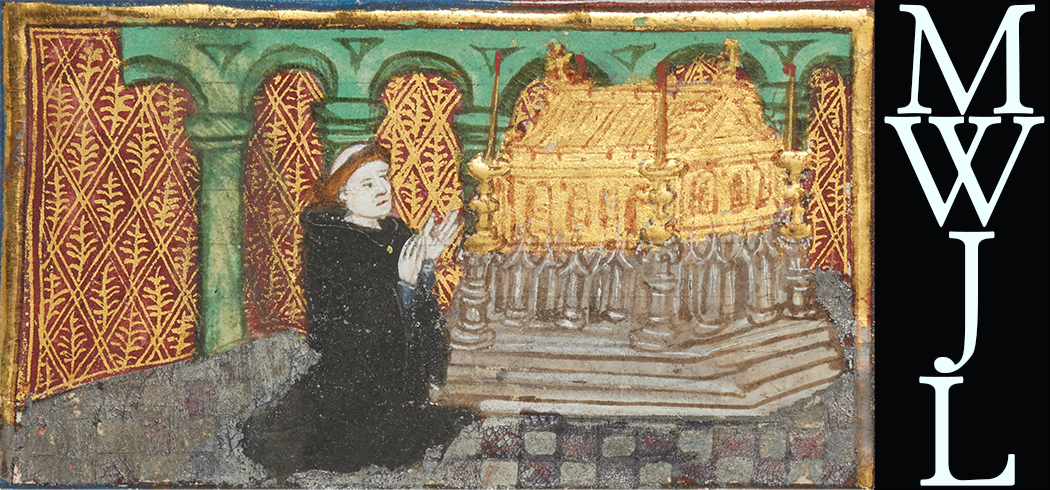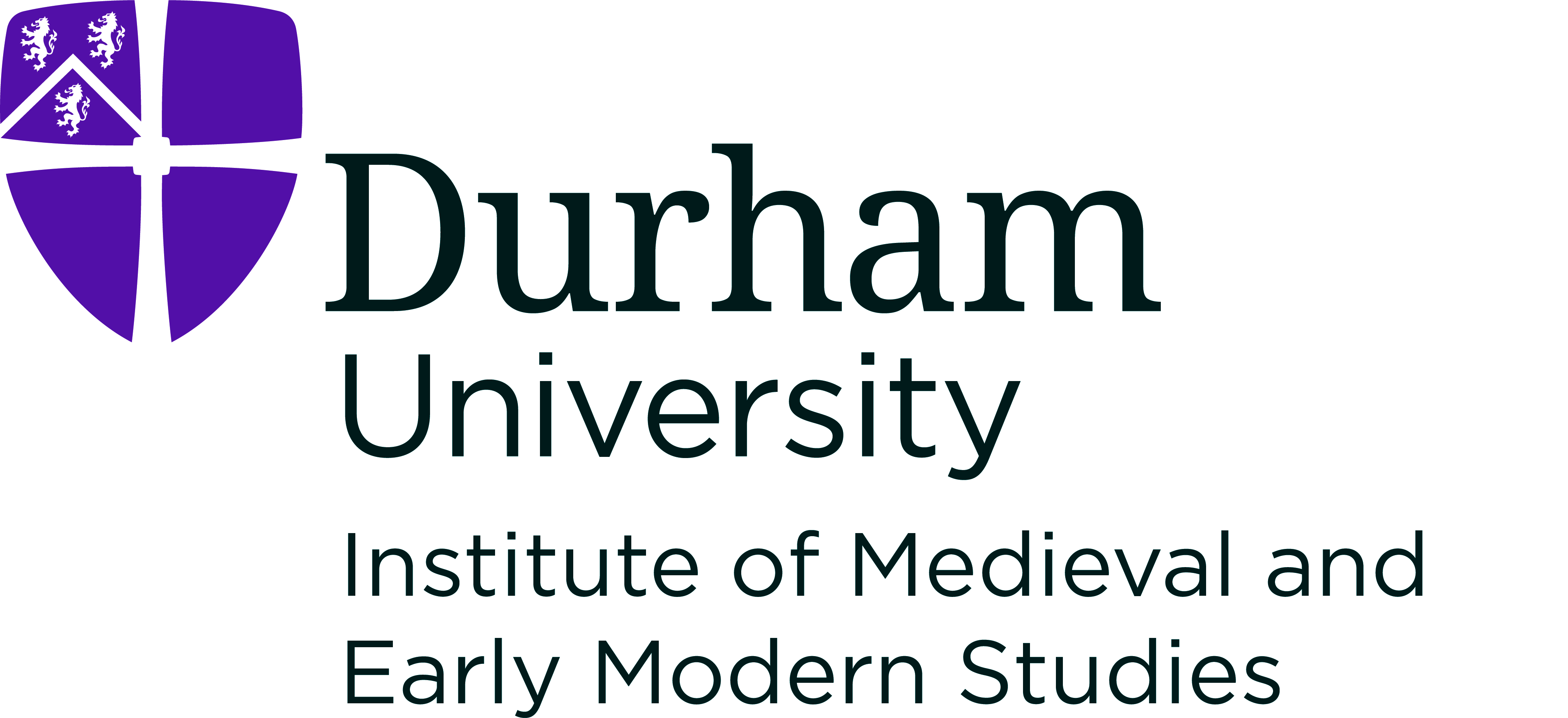 A Mumming for the Goldsmiths of London:
British Library Additional 29729 Verses
A Mumming for the Goldsmiths of London:
British Library Additional 29729 Verses
HomeAbout the ArchiveAbout John LydgateWorksManuscriptsAbout this ManuscriptEditorial ApparatusContactVisualization
Folio 134 Verso
Compare Witnesses: •
O ye leuites / whych bere this lordes arke •
dothe youre deuoure / with heuenly armony •
the great mysterye deuoutly for to marke •
with laud and prayse the lord to magnyfye •
of on accord / sheweth your melodye •
syngeth for Ioye that the arke it sente •
now to the mayre with hoole and true entente •
Notes
-
The h here is barred but there is nothing that obviously suggests it is a suspension, especially since the "g" is written out. ↩
-
Based on the other witnesses this should be "arke," but it's clear that the second glyph is not "r" based on the other witnesses in the manuscript. Additionally, the initial glyph has a dark ascender that may be an attempt to correct "d" to "a" or "o." Without any indication that this is a delieberate strikethrough, however, it should be assumed that the initial glyph is "d" with a dark ascender. This can be seen elsewhere in the page, for example in "good" in the sixth line of this stanza. Additionally "arke" can be seen in line one of the second full stanza from the bottom, which further indicates that the word written here is not "arke." ↩
-
There is a mark over the "oye" in "troye" here, and I cannot see any obvious suspension. This suggests that the mark is otiose. ↩
-
There is a mark over the "owe" ending this word. In other witnesses--Harley 218, for example--this is "thorughe," so it may be that this is meant to be a suspension for "gh." Practice elsewhere in the manuscript is to bar "h" for "gh, which makes me speculate that this is an otiose mark unthinkingly copied from an exemplar where such a suspension existed. Rather than "gh," however, "w" occupies the position before the terminal "e" in the manuscript. It also suggests that the "gh" combinations alongside an otiose mark are similarly aping an example from the exemplar. ↩
-
The mark over te "ht" here appears to be otiose. ↩





